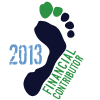2. Repeatedly talk about the
2. Repeatedly talk about the idea that barefoot shoes allow you to run with the same form you use when runnign barefoot, then mentioning the differences (advantages) you get from being barefoot (tactile sensation, build in regulator, etc.)
I don't know this to be true, and you've even recognized this fact before yourself. It seems from my exposure to talking to people over these past years that perhaps 50% of people are able to move from barefoot to minshoes and back and forth and maintain proper form. Proper form goes to hell for the other 50% , me being one of them. I heel strike terribly when I wear minshoes. I land harder when I wear minshoes. My feet ache more after running in minshoes. With transitional shoes come transitional injuries. Because of that, those 50% are at risk of injury. Their perception is all wrong; they "feel" they can run harder and farther than they should. Then there's the concern that someone who transitions too quickly to minshoes hasn't developed their musculoskeletal system enough to handle the change in running style. Their bones and tissues are weakened and not strong enough. They experience stress fractures, Top of Foot Pain (TOFP), tendonitis, plantar fasciitis, Achilles problems, etc. We're seeing it here all the time, Jason. It's these people we need to reach. But how do we discern those who are able to run safely alternating barefoot and minshoes and those who can't run safely (at that time in their progression). We can't! This is why I always urge people to learn proper form while running barefoot first, with no aid from shoes of any kind whatsoever, and to do so for as long as they possibly can, to take the process very slow, and to only wear minshoes when they are truly needed.
3. Actively engage companies and running stores in discussions by offering to give workshops to help people learn to run barefoot as a prerequisite to buying barefoot shoes. Sell the idea by reminding them that learning good form and the idea of safely transitioning will reduce the number of returns. Do the same by contacting manufacturers. Offer to help them develop educational materials. By contract, I can't do this for other companies, but I know they're very open to any help they can get.
I LOVE THIS! How can we, the BRS, be more proactive in this? I'm a little drunk on all the drugs and lack of sleep, so if you don't mind coming up with a game plan, that would be great. And it will fit your Activities VP role perfectly. ;-) Now THIS is something I/we can do!
4. Internalize the idea that some people have no interest in runnign barefoot, they just want to run in barefoot shoes. Once we accept this, we get a lot less dogmatic and ourr message gets much more persuasive.
We/I do this as well. Check out our About page below. We state this very thing. (I know. You're not talking about us over here.) Here's the last paragraph on our About page:
We understand that not everyone can run barefoot at all times under all conditions. Some people may not be able to run completely barefoot from the get-go. We got that. They may have health conditions (severe osteoporosis, diabetes, neuropathy, ciculatory conditions, etc.) that would prohibit them from doing so; others may live in areas where the terrain is always extreme, and most of us live where we experience extreme weather/temps at some point during the year. We also realize that in the end, most people are not going to choose to run truly barefoot 100% of the time or at all. WewTherefore, we believe it is very important to provide our members with information that will help them to make informed, healthy decisions about what to put on their feet.
I have TREMENDOUS success by convincing people to move to minimal shoes, then encourage them to test out barefoot runnign for a few wweeks to help learn to use the shoes. They start off with no intention of ever continuing barefoot, but the lure of learning to use the shoes correctly is enough for them to test the waters for a few weeks. Almost all find they LOVE being barefoot and include it as a permanent part of their routine. In short, they end up doing far more barefoot running than if I would have insisted they had to run barefoot for a longer period of time.
I LOVE THIS TOO! I think I have an impact here as well with the many posts and communications I have had with people over the past few years. It tickles me to hear it each time.
5. Blog about the knowledge you've accumulated. Even if one person reads it, you've made an impact.
I know you're not talking about me personally, and neither is PJ, but I honestly don't have time to blog. Running the BRS (thank God for those who help me, and you too!) takes up all my spare time. I would love to have a blog. I have a lot of good stuff to talk about. I have a lot of perspective, I think, that other bloggers don't consider or write about. Maybe in the future should things settle down around here, but with our constant, steady growth, I don't know when that will be.
6. Offer to hold clinics or even discussions with local health professionals. Christian does this with great success. The medical community has done a 180 over the last year. They're MUCH more skeptical about the need for support and hungry for more information about barefoot running.
Maybe once I've healed up, I will find the time to do this. It's hard to be a good instructor when you're battling Morton's Neuroma and Plantar Fasciitis due to having MN. And people only go to see SayPay's clinics (Christian) because they are amazed at how tall he is! Hee. He would say it's because of all his awesomeness though.
7. Mellow out about the "shoes are bad" thing. This is a tough one for some, and many people are already there. Just understand the evangelical "you should always be barefoot" does not play well with the general running community. On a related note, don't vilify shoe companies. he modern runnign shoe wasn't some grand conspiracy brought about with ill intent. It was a comedy of errors fueled by ignorance. Shoe companies are beginning to realize this and are actively trying to change course without going out of business. Same deal with running stores. Give them time and help them along.
This is so key, so important. I think the evangelical mindset comes from those who are new to our sport. They are so excited to have found barefoot running, that they just want to shout it from the rooftops. After the shine wears off and they start to experience the truth themselves, the conditions that require footwear like health, weather, terrain, etc., they come to understand that barefoot is best, but shoes can be a great tool to have in your arsenal. Even Ken Bob told me he could not have run in the winter barefoot when he lived in Michigan. He accepts and understands those of us who do wear footwear when the temps are too low, and he understands why.
Good stuff, Jason. That's some of what we're needing. When we start to hear honest reports of where the injuries are coming from and why, I will be more than happy to embrace the term.





















